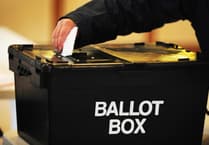Temporary measures put in place for new detainees at Jurby jail during the Covid pandemic did not breach their human rights, the high court has ruled.
Wayne Kenneth Mellor was detained on the isolation wing at the prison between April 20 and May 1, 2020, during the first Covid-19 lockdown.
He alleged that the Department of Home Affairs breached articles 3 and 8 of his human rights, as well as the department’s duty of care towards them.
But the High Court has dismissed his claims, with Deemster Cope ruling there was no breach of human rights or the duty of care.
His judgment recognised the unprecedented event during which the claimant was in custody.
Following the first case of community transmission on March 22, 2020, social visits by family and friends were suspended at the prison.
Further restrictions were then imposed, including halting resident activities, education and prisoners’ jobs.
But major changes were introduced by the governor on April 17, following the admission of a detainee believed to be infected.
All new admissions were to be held in isolation for 14 days on B wing which was designated as the new isolation wing.
Under this ‘red regime’, cells were unlocked just once per day, at about 11.30am, when food and medicine for the next 24 hours was delivered in one ‘drop’.
This regime was partially relaxed on April 29 to permit detainees with no symptoms to have showers and to make phone calls to family or friends on Wednesdays and Sundays.
Five other detainees at the prison had alleged similar breaches of human rights and duty of care.
Two two separate sets of proceedings were also commenced by other detainees.
But over time, the various claimants discontinued and in March it emerged that all the remaining ones except Mr Mellor had reached a settlement.
Mr Mellor represented himself when his case came to trial last month.
Deemster Cope’s judgment noted that the regime introduced at the prison had the legitimate objective to protect incoming and existing prisoners and prison staff.
He described the measures as ‘exceptional for exceptional times’, and being ‘of short and fixed duration designed to prevent the outbreak or spread of a life-threatening infection in a closed community of vulnerable residents’.
In a statement, the DHA said it appreciated that the experience, for both prisoners and staff, while these measures were in place would be particularly difficult.
It said: ‘They were introduced during a time of global uncertainty, but the department would like to assure all involved that the governor and staff acted in the best interests of all at the prison.
‘As the only prison on island, robust measures were needed to ensure its continued safe and secure operation.
‘It is a testament to the work of the governor at the time and his staff that there were no lives lost in prison due to the virus.’
The DHA settled claims with four other detainees held at the same time as Mr Mellor.
This was settled on a ‘no admission’ basis, with ‘modest’ payments made in the name of public interest, said the department, explaining it had hoped to conclude litigation to reduce the costs incurred on the public purse through legal aid and court costs.




